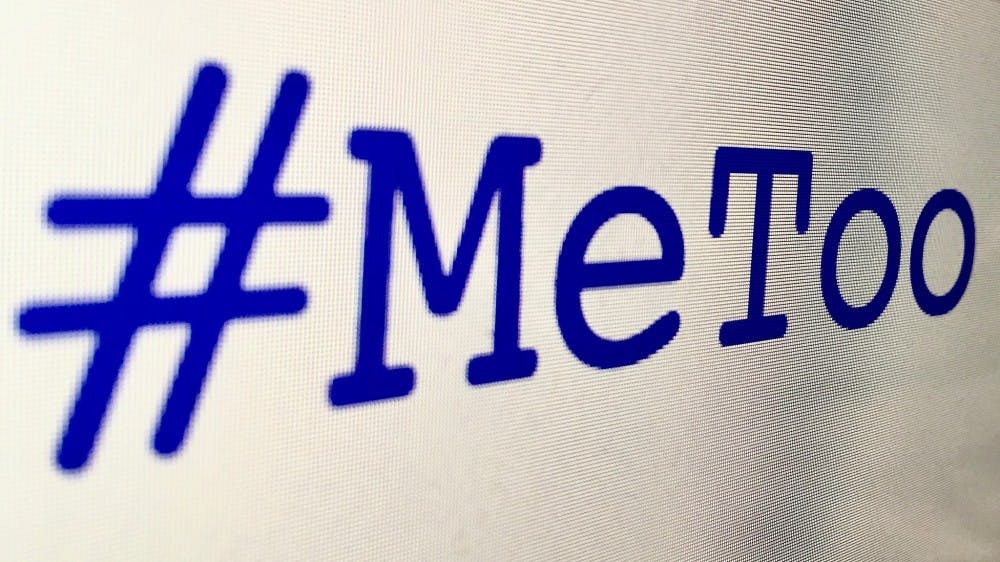Although #MeToo is a national movement, sexual misconduct is a major concern on college campuses.
The phrase “Me Too” was being used to condemn sexual abuse as early as 2006 by American social activist Tarana Burke who began her work in Alabama. The #MeToo movement came about when she was working a camp for at-risk brown and black girls. A young girl at the camp disclosed that she had experienced sexual violence, which started to mirror some of Burke’s own personal experiences.
“The #MeToo movement is so deeply personal to people that it activates an automatic emotional response,” said Coordinator of Violence Prevention and Survivor Advocacy Melissa McConaha. “For some people, it triggers traumatic memories, or feels deeply validating, or touches on rampant misinformation, or challenges our worldview, or instills fear or anger. But what I love most about this movement — in addition to it being solely victim/survivor focused ... — is that it’s an invitation for us to collectively sit with these stories.”
With nearly two-thirds of college students having experienced sexual harassment, statistics around sexual abuse on Auburn’s campus show that cases of reported rapes have increased.
According to Auburn University’s 2018 Annual Security and Fire Safety Report, in 2017, 13 cases of rape occurring on campus were reported, with 10 of those incidents occurring in student housing facilities. Eleven instances were reported in 2016, and eight accounts were reported in 2015.
“I think there are two separate conversations going on,” McConaha said. “We have this social, grassroots awakening happening around interpersonal violence, violence against women and sexual violence. And then we have policies that are going on with the federal administration. These are very different things, and I think most people would say that they are on opposite tracks.”
Unveiled in November 2018, the revised U.S. Department of Education guidance on sexual assault reduced the responsibility of colleges and universities to respond to sexual misconduct claims and bolstered the rights of defendants.
Opponents of the department’s changes under Secretary Betsy Devos say the changes are an aggressive rollback of efforts to combat sexual assault on campus.
“The Department of Education has released their suggested policies, and they are not great,” McConaha said. “Through the lens of victim and survivor advocate researchers in the field, they’re seen as pretty regressive and restrictive.”
On Auburn University’s campus, there is intentional work being done in response to sexual assault and sexual violence.
“The Title IX coordinator has been offering training for staff and faculty on sexual assault prevention and response for many years,” McCallister said.
The language and the type of warning notices that the University uses to address sexual assault have also changed.
The warnings used to be more focused on the behavior of the victim, but now the University focuses more on the consequences of perpetrating sexual assault offenses, McConaha said.
“Not only does this movement seek to provide a path toward empowerment and healing for survivors, it also helps us better understand these complex issues so that we can more intentionally move toward progress,” McConaha said.
There are numerous resources on and off campus available for Auburn students who want to report an incident, talk to someone or support a survivor through Auburn University’s Title IX, McCallister said, dividing the resources among confidential and non-confidential.
Confidential resources include counselors through Student Counseling and Psychological Services, advocates at Safe Harbor, East Alabama Medical Center and Rape Counselors of East Alabama.
Some of the non-confidential services include Title IX process advisers, the Auburn Police Division and Opelika Police Department Secret Witness hotline.
According to McCallister, Title IX provides some guidelines for supporting survivors of sexual abuse. These guidelines include believing survivors’ experiences, respecting survivors’ fear, accepting survivors’ strong emotions and listening without interrupting.
Do you like this story? The Plainsman doesn't accept money from tuition or student fees, and we don't charge a subscription fee. But you can donate to support The Plainsman.





